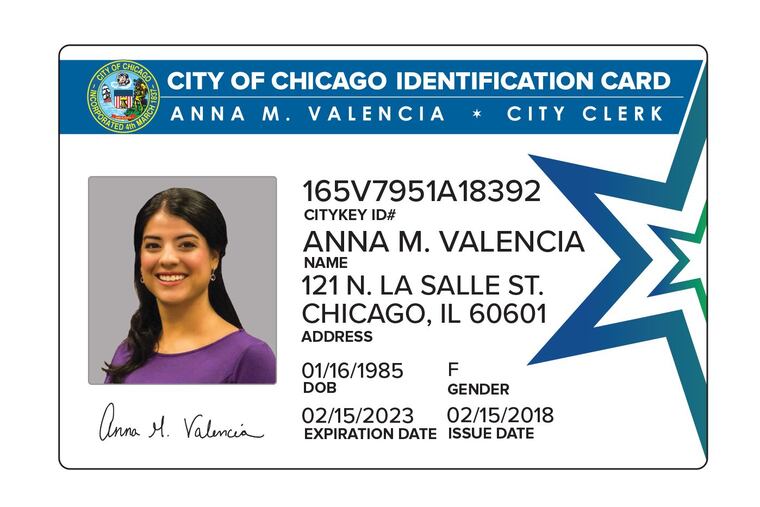No driver’s license, no photo ID? Philadelphia will issue municipal ID cards starting next year
After years of talking and planning and delays due to privacy concerns, Philadelphia plans to start its own program to give municipal identification cards to people without government-issued IDs.

A stage-3 breast cancer patient couldn't get treatment and support services at her hospital, because she didn't have identification.
Another woman couldn't go to her child's parent-teacher conference, because the school wouldn't let her in without a government-issued ID.
A man recently released from prison needed an ID quickly to get into transitional housing, and another needed one for a job interview.
Situations such as these spurred Chicago to launch Chicago CityKey, a municipal photo-identification card for residents, three months ago. The city became one of a couple dozen cities and counties across the country with similar ID programs, including New York City; Newark, N.J.; San Francisco, and Detroit.
Philadelphia will soon join them, planning to roll out its version in January.
Throughout New Jersey, the cities of Plainfield, New Brunswick, Elizabeth, and Perth Amboy are among municipalities that offer identification cards to residents without government-issued IDs.
Because of immigration status, financial limitations, youth, or other reasons, some people cannot obtain valid ID cards from the state or federal governments, or else run into obstacles when they try to do so. A municipal ID card is an alternative. In Philadelphia, it would help residents access basic services, such as groceries from food pantries, treatment for drug addiction, and entry to City Hall and the Municipal Services Building. In Chicago, the cards also offer discounts on medical prescriptions and museum admissions and double as library and public transit cards.
Municipal IDs have been controversial. Immigration advocates say they are concerned about how cities will use the required personal information; opponents say the cards give undocumented immigrants access to services to which they should not be entitled.
But local-government officials say the cards are necessities.
"There's been a need for quite some time," said Joanna Otero-Cruz, Philadelphia's deputy managing director of community services, who also oversees the city's Office of Immigrant Affairs. "We're a poor city. And so we need to be able to address what are the barriers to get people their basic needs."
When Mayor Kenney took office in 2016, he listed the IDs as a priority. Proponents say the photo IDs can help domestic violence survivors and victims of fire who had to leave behind vital documents, elderly people without driver's licenses, and the homeless. Residents can use the cards to open bank accounts or verify their identities to police officers.
To get municipal ID cards, residents generally need to prove who they are through documents such as birth certificates, passports, or foreign national identity cards, and their city residency through utility bills, deeds, leases, or letters from homeless shelters. The city is still considering which documents to accept and how to address privacy concerns.
These issues slowed the progress of the city's ID program last year.
Golnaz Fakhimi, an immigrants' rights attorney with the ACLU of Pennsylvania, said she supports municipal ID programs generally, but, "how these programs are rolled out, and what the fine print of these programs is, matters."
Philadelphia does not plan to keep applicants' documents, but in order for banks to accept the cards, the city may have to retain at least descriptions of documents. "That may be as problematic as retaining copies," she said.
The city also needs to tell immigrants and other cardholders where to use them and where they should not, she said. She pointed to recent examples in New York, such as a pizza delivery man and others who tried to get onto military bases using municipal ID cards, which ended in calls to U.S. Border Patrol agents.
Philadelphia officials have been watching and learning from other cities and the challenges they have faced. For example, Philadelphia officials are figuring out how to deal with gender-identification issues among applicants.
The ID would be available to residents 13 and up. Philadelphia plans to market them to everyone, as Chicago has done, to remove the stigma of carrying such municipal cards.
"It's something we can give as an added benefit of being a proud resident of Chicago," said Anna Valencia, Chicago's city clerk. "We believe it is a key that can unlock communities and opportunities for all Chicagoans."
More than 13,500 people in Chicago have gotten the cards since the program started on April 26. As in Chicago, officials in Philadelphia want to include added benefits such as museum discounts and library access and maybe even discounts to sporting events. Those capabilities will most likely be gradually phased in after the initial rollout.
Philadelphia has hired the same vendor that helped Chicago implement its program. Otero-Cruz estimates that the first year of the program — including software, hardware, and employees' salaries — will cost about $580,000. The city has not yet finalized how much it will charge for the cards.
Just last week, two constituents came to the office of Councilwoman Maria Quiñones-Sanchez for help when they lost their driver's licenses — one for failure to pay tickets, and the other for failure to pay child support — and said they couldn't get money out of their bank accounts without those IDs.
Quiñones-Sanchez cosponsored a bill in 2013 with Kenney to start a municipal ID program and also sponsored similar legislation in 2016.
"While this took longer than we had hoped," she said, the delay gave the city time to learn from other cities' experiences. Chicago, which took lessons from New York and Detroit, is working on a tool kit for cities that want to offer municipal IDs.
"Philadelphia will be in a very good place," Quiñones-Sanchez said, "to roll this out well."